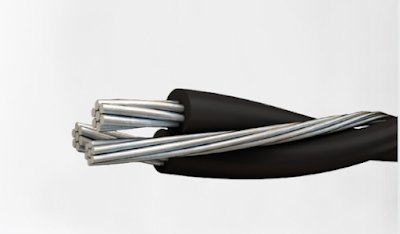Everything You Need to Know About Solar Cables
It's critical to comprehend the parts of a solar energy system as solar power continues to grow in popularity as a source of renewable energy.
Solar cables, which transfer the DC power produced by solar panels to the inverter, which transforms it into usable AC power, are an essential part. All you need to know about solar cables, including their varieties, diameters, and installation specifications, don’t worry we will convey tips and information approved by TUV Solar Cable Suppliers.
Solar Cable Types
Photovoltaic (PV) cables and direct burial cables are the two primary categories of solar cables.
Solar energy systems are developed specifically to utilize photovoltaic (PV) wires.
They are perfect for outdoor use because they have a UV-resistant outer coating and are made to withstand severe weather. Solar panels-to-inverter or inverter-to-grid connections are frequently made using PV cables. Both single-core and multi-core variants are offered.
Underground cable
On the other hand, direct burial cables are intended for use underground.
They are frequently used to connect the inverter to the AC distribution panel and feature a more durable outer sheath that can withstand soil and moisture. There are single-core and multi-core versions of direct burial cables.
Tips to consider while choosing solar cable
Solar cable sizes
Your solar energy system's current and voltage needs will determine the size of the solar cables you need.
Larger wires are typically needed for larger solar installations. Solar cables typically come in sizes 10 AWG, 12 AWG, and 14 AWG.
Electrical wire diameter is measured using the American Wire Gauge (AWG), a standardized system.
The thinner the wire, the lower the AWG number. Larger solar systems necessitate thicker cables since they can carry more electricity thanks to thicker wires.
Installation specifications
There are a few key considerations while installing solar cables. All solar cables should, first and foremost, be rated for outdoor use and have an outer sheath that is UV-resistant. By doing this, the cables will be shielded from the sun's damaging rays and won't deteriorate over time.
The second recommendation is to properly ground all solar cables. By doing this, the wire must be attached to a grounding rod or other acceptable grounding point.
For safety reasons, grounding is crucial because it can shield people from electrical shock in the case of a malfunction or lightning strike.
Solar cables and regular cables have different properties
The solar cables differ from standard electric wires in a number of ways. The primary causes of the variance in construction are the fundamental needs and the site of installation.
External sheathing or covering
Electric cable insulation sheathing is sometimes known as a jacket. Ideal installation locations for standard electrical lines are inside walls or other enclosed areas.
This lessens the likelihood that standard wires will come into close contact with severe weather.
With solar cables, this is not the case. Installing the solar cable would take place in an open area.
As a result, people would be exposed to bad weather conditions like wind, rain, and sun. Because of the need to support the loads, the sheathing must be durable and weatherproof.
Durability
Compared to regular electric cables, solar cables are more durable. The reliable and dependable cable jackets are the main cause.
The solar cable's performance won't significantly decline for up to 25 years. On the other hand, a typical electric cable would need to be replaced after over ten years. If not, the power supply would be hindered or reduced.
Used conductors
Electrical conductors vary between solar cables and normal wires. Solar cable typically only has one conducting substance.
The typical electrical wire, however, will have several conductors installed together to transfer electricity.
Benefits of using solar cable and solar power
Environment-friendly
Eco-friendly techniques are becoming more prevalent worldwide. Solar energy not only helps to preserve biodiversity but also offers significant financial savings.
Electricity Bill Savings
The biggest benefit of solar panels is their impressive reduction in electricity costs. A large reduction in the electricity bill could be achieved by following healthy habits.
No Power Shortage
When one has solar panels of a sufficient capacity installed, power outages and reductions in electric supply due to severe weather or reductions in electricity output will not influence.
Installing solar panels in accordance with the requirements' calculations will allow you to satisfy all of your electrical needs at home, at a business, or in an industrial setting.
Energy that is environmentally friendly
Solar panels don't harm the environment. It is among the safest methods for generating electricity. Solar power is without a doubt the energy of the future.
Renewable energy sources are an endless source of power. Without reducing its availability, solar energy might be explored to its full potential.
Usage Regardless of Location
It is accessible all over the world. Installing solar panels allows one to use solar energy to run systems and equipment in their home, place of business, or industrial facility.
Low-Cost Power
Compared to other methods of producing power, the expenses of maintenance, power generation, and distribution are lower. Businesses benefit from solar energy's cost savings and increased productivity.
Developing Technologies
Research and advancements in the solar energy industry are taking place all over the world.
As a result, there is constant change and technical advancement. As a result, a remarkable revolution in the solar energy system is anticipated soon.
Wrapping up
Finally, sufficient strain relief should be put on all solar cables. To prevent the cables from being yanked or twisted, they must be fastened to the solar panels and other parts.
Solar cables are, in summary, an essential part of every solar energy system.
We at Znergy Cable are one of the best tuv solar cable manufacturers and suppliers in Australia that provide technically excellent solar cables that can be appropriate for homes, businesses, office buildings, factories, and other commercial establishments.
.jpg)



Comments
Post a Comment